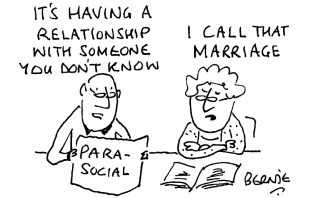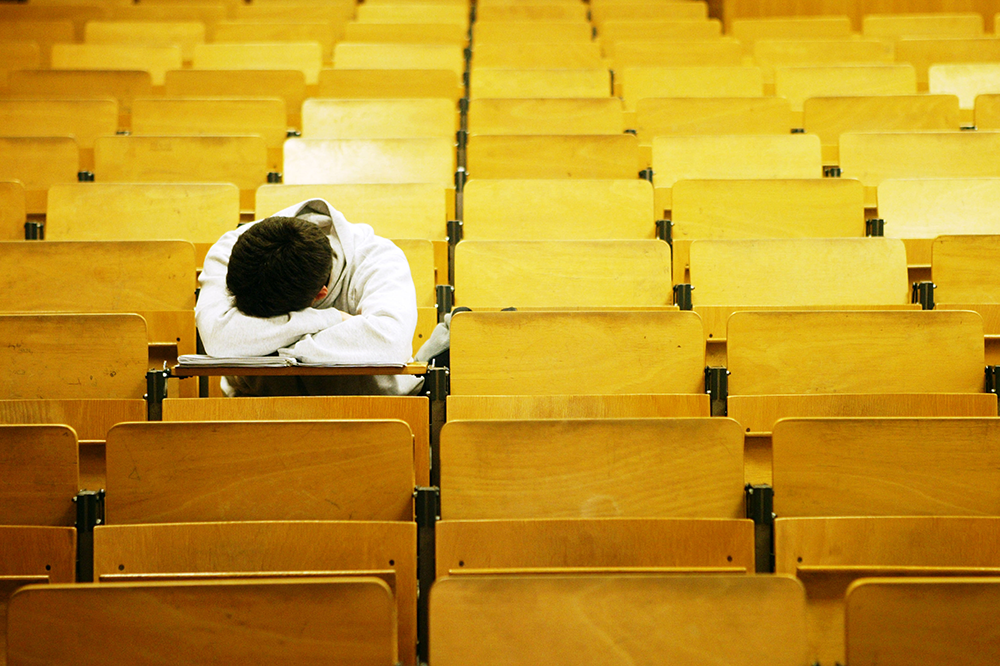
German teachers are a privileged species. Most of us enjoy the status of a Beamter, a tenured civil servant. We can be dismissed only after a serious criminal conviction, we are exempt from social insurance contributions, and even our mortgage rates are lower. Such comfort discourages dissent. Yet, after more than 25 years as a pampered Beamter, I find myself overwhelmed, not by the teaching load or the students, but by the accelerating erosion of academic standards.
Having taught English, history and Latin at four different Gymnasien, the equivalent of a grammar school, I have learned that challenging students is frowned upon by both bureaucrats and politicians. Nearly all my colleagues agree that standards have plummeted. A mathematics teacher tells me that sixth-form assignments he set 20 years ago would now be beyond even his best pupils. One thing is certain: the pupils themselves are not to blame.
The decline began in 1964, when philosopher Georg Picht published The German Education Catastrophe, calling for a drastic expansion in the number of university-eligible school-leavers. Until then, only those who graduated from a Gymnasium qualified. Picht’s alarmism found ready ears. In 1960, 7 per cent of pupils left school with such a qualification; today, more than half do.
Grammar, spelling and factual knowledge are dismissed as obsolete
The inflation of academic credentials accelerated with the 1999 EU Bologna reforms, which dismantled the traditional and rigorous degree structure and replaced it with the Anglo-American model. Only medicine and law escaped. The effect has been the slow death of Germany’s once-superb vocational system. Many small- and medium–sized businesses no longer offer apprenticeships; school-leavers find some comfy course at uni instead. More than 70 German universities offer degrees in gender studies.
As university places were massively expanded, the Gymnasien had to lower their entry thresholds to keep pace with the demand for more and more students. Since 2002, in my own state of North Rhine-Westphalia, parents have had the right to choose their child’s secondary school, regardless of their teachers’ recommendations. Children deemed unready for the Gymnasium are admitted, and once they are enrolled, bureaucratic obstacles prevent them from being moved to a more suitable comprehensive.
The deterioration has been striking in my subjects. Since 2007, students have been allowed to use dictionaries in English exams, discouraging them from memorising vocabulary. That same year, the Zentralabitur – a centralised state exam – replaced teacher–written finals. Previously, each school designed its own papers, tailored to what had been taught. Now, vague, homogenised curricula require little factual knowledge. History was replaced by the nebulous goal of ‘intercultural communicative competence’.
Objective grading once relied on the Fehlerquotient (number of grammatical errors per hundred words). This was derided as ‘too rigid’, replaced by an imprecise points system designed to boost marks. Marks are awarded for trivialities, such as ‘structuring’ a text. Students quickly learn the formula: list a few stylistic devices – enumerations, metaphors, repetitions – and you can be seen to analyse any text. Teaching to the test has replaced teaching to think. Real objectivity would require blind marking, external examiners and anonymised papers – none of which exists.

When I attended Gymnasium in the 1980s, advanced English students were required to study an entire Shakespeare play. Later, this became selected scenes; then scenes from film versions. In 2023, the Bard was dropped entirely, replaced by the study of ‘questions of identity and gender’.
Since 1970, North Rhine-Westphalia has had only eight years of non-leftist control over education. Progressivism permeates every level. Among teachers, Green sympathies are disproportionately high. Of the 17 newspaper articles used in exams between 2020 and 2025, not one came from a conservative source. The Guardian and the New York Times dominate.
Behind all this lies the creed of ‘competence orientation’. Grammar, spelling and factual knowledge are dismissed as obsolete. It is enough to ‘communicate effectively’. Why, then, read Shakespeare? Why learn a soliloquy by heart? In biology and geography, exams no longer test knowledge but the ability to interpret pre-packaged ‘material’ – charts, graphs and snippets of text. A colleague who marks geography papers believes anyone with common sense and patience has a decent chance of passing.
Latin, too, has been softened. Translation from German to Latin is banned as ‘too difficult’. Lessons are increasingly padded with Roman culture and history. Even translation marking has been diluted: for every five untranslated words, a maximum of three errors may be counted.
When the state exam was introduced, most teachers welcomed it because it meant less work. I realised something had gone horribly wrong when I graded a history paper by a gifted student who provided precise dates, facts and definitions. The new state syllabus allowed only limited marks for such content. I only managed to salvage her grade by awarding her full points elsewhere.
Across all subjects, measurable trivia has replaced genuine learning. Multiple choice has supplanted multiple perspectives. Today’s ‘competence orientation’ manufactures compliant consumers who consult Wikipedia or ChatGPT for ready answers. To criticise ‘competence orientation’ is near-heresy; every mainstream party endorses it. It was introduced in my state under a Green minister, continued by a Liberal and remains untouched under a Christian Democrat. For the left, it serves egalitarianism; for Liberals, it produces plentiful and pliant employees. The Christian Democrats’ acquiescence is harder to fathom. But the result of all this is clear enough. In 2011, a student of mine wrote at the end of a Shakespeare exam: ‘Students don’t have to learn any more facts. Studying in this way is boring. Students will die of boredom.’ If only I could have given him full marks.







Comments